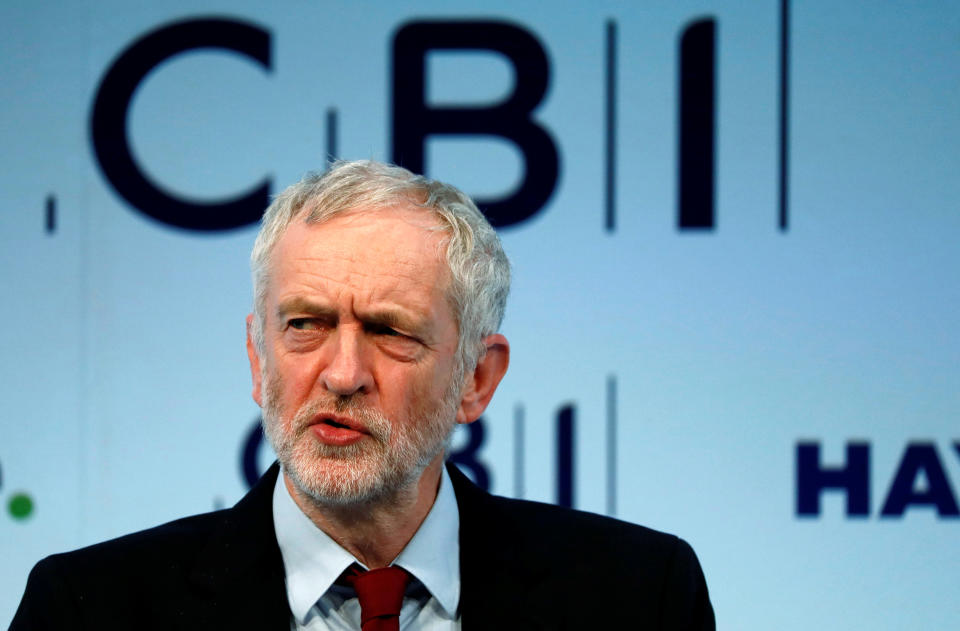Business group accused of 'telling lies' on Labour nationalisation plans cost

Britain’s biggest business lobby has been accused of “telling lies” about the true cost of Labour’s nationalisation plans.
The Confederation of British Industry (CBI) earlier this week estimated that Labour’s plans to bring rail, mail, energy, and water back under state ownership would cost an “eye-watering” £196bn. The lobbying group said the plans would “make millions of people poorer in their old age.”
However, Andy McDonald MP, Labour’s shadow business secretary, on Wednesday accused the CBI of “telling lies to discredit Labour's popular plans for public ownership.” It comes after an email exchange between Labour and the CBI that he claims shows they exaggerated their figures.
READ MORE: Labour's nationalisation plans 'will cost £196bn'
The Guardian, which has seen the exchange, said the CBI admitted it had assumed Labour would renationalise the railway rolling stock in its calculations. Nationalising rolling stock — the trains themselves that are leased to operators — is not part of Labour’s proposals. The CBI said in the email exchange that the impact of the rolling stock assumption was small but wouldn’t breakdown its calculations.
The CBI’s figure has raised eyebrows elsewhere. Simon French, chief economist at stockbroker Panmure Gordon, said on Twitter that the estimate was “poor” when it was first published.
French, who formerly worked in the cabinet office, said the analysis should take into account the value of the assets acquired and the cashflow they would generate, rather than just the up-front cost.
This is rather a poor headline from the CBI. Looking at liabilities without assets would generate an immediate fail on any impact assessment. To take down the case for re-nationalisation you actually dont need to resort to chasing big headline numbers https://t.co/ifxn9i9Yau 1/
— Simon French (@shjfrench) October 14, 2019
“Looking at liabilities without assets would generate an immediate fail on any impact assessment,” he wrote.
French told Yahoo Finance UK on Wednesday: “The error in the CBI’s calculation which appears to be a simple inability to translate the policy position of Labour (on rolling stocks purchases) into the correct modelling assumptions. Whether that is a deliberate overstating or just a simple error we will never know, but either undermines the message.”
McDonald told the Guardian he wanted an apology from CBI Director General Carolyn Fairbairn for the “fabricated false information” and said the business lobby didn’t have “the guts to publish their figures.”
READ MORE: A Corbyn government could hurt these stocks
A spokesperson for the CBI told Yahoo Finance UK: “The CBI stands behind its analysis of Labour’s plans for large-scale renationalisation.
“The cost of purchasing rolling stock is a fraction of the £196bn and was included as that is what full-scale re-nationalisation of the rail industry would likely involve. If a Labour government chose not to purchase the rolling stock, they would still need to pay the cost of leasing them.
“Labour has a lot of questions to answer on its re-nationalisation proposals.”
Labour dismissed the CBI’s £196bn figure as “incoherent scaremongering” when it was released at the start of the week.

 Yahoo Finance
Yahoo Finance 